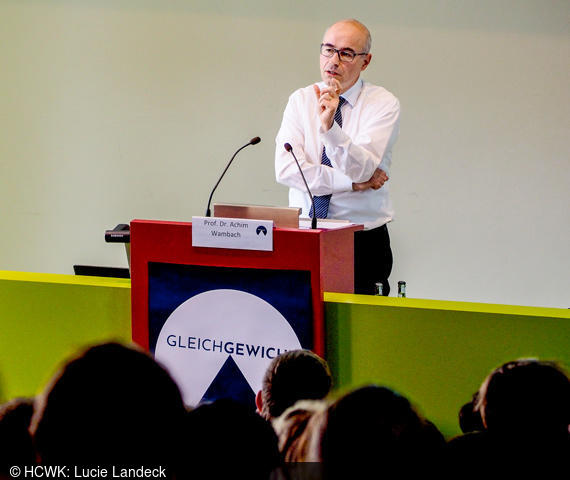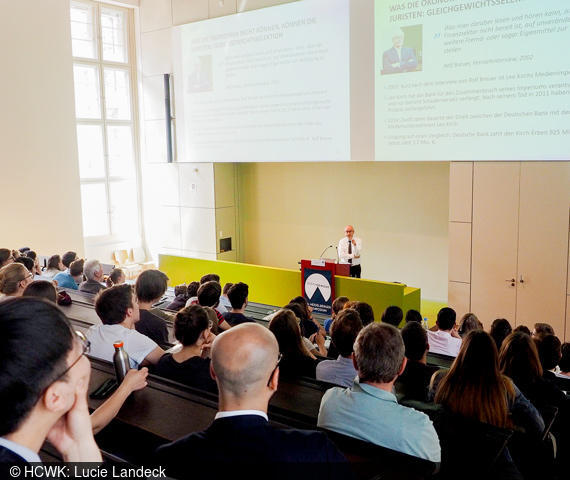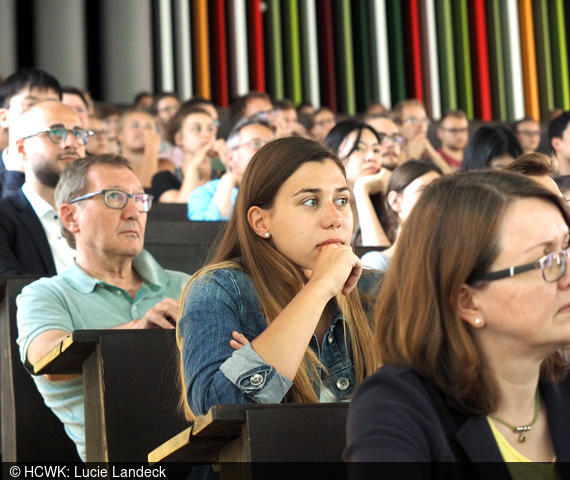ZEW President Discusses (Im)Balance with Students
Dates and NewsThe economy is in good shape when it is in balance. But if the economy is not in balance, does that mean it’s in trouble? What effect does a balanced or unbalanced economy have on private households, firms or the country as a whole? And how do we know when the economy is in balance? These are some of the questions addressed by ZEW President Professor Achim Wambach, PhD, in a talk on what balance means for economics at the 30th Heidelberg Symposium on 24 May 2018.
In his talk, Professor Wambach discussed a number of economic theories and ideas about equilibrium from both a micro- and macroeconomic perspective, as well as through the lens of economic policy. He provided an overview of the most common economic perspectives on the subject, ranging from the Nash equilibrium in game theory, to the Solow Growth Model, the concept of steady state and DSGE models. He explained the significance of these theories and models from the perspective of economic policy, using as an example the Keynesian theory of employment equilibrium as well as Germany’s Stability and Growth Law and the economic balance this legislation aims for to underline the relevance of these models in assessing economic prosperity. Given the multiple potential definitions of the term “balance”, Wambach also highlighted the importance of being aware of how differently the term can be interpreted.
It is therefore important to be absolutely sure what “balance” or “equilibrium” means in the given context and what it means to be out of it. The lecture, held in the main lecture hall in the Neue Universität of Heidelberg University, was attended by around 300 students and was followed by a lively Q&A session. Students posed questions about the pros and cons of Germany’s strength in foreign trade, the country’s current account balance as well as the economic performance of both Germany and the EU.
About the 30th Heidelberg Symposium
Since 1989, the annual Heidelberg Symposium has provided a forum for the discussion of current issues affecting our society. The interdisciplinary event is organised by the Heidelberger Club für Wirtschaft und Kultur (HCWK), an independent, non-partisan, multidisciplinary student initiative. Over several days, the student organisers create a forum for lively and informative debate with the goal of encouraging public discourse and to promote the educational ideal of the well-rounded human being. The symposium hopes to expand on university teaching by providing a practical and interdisciplinary approach.


